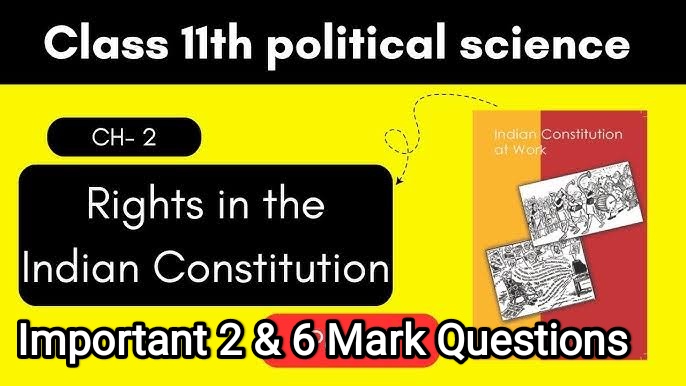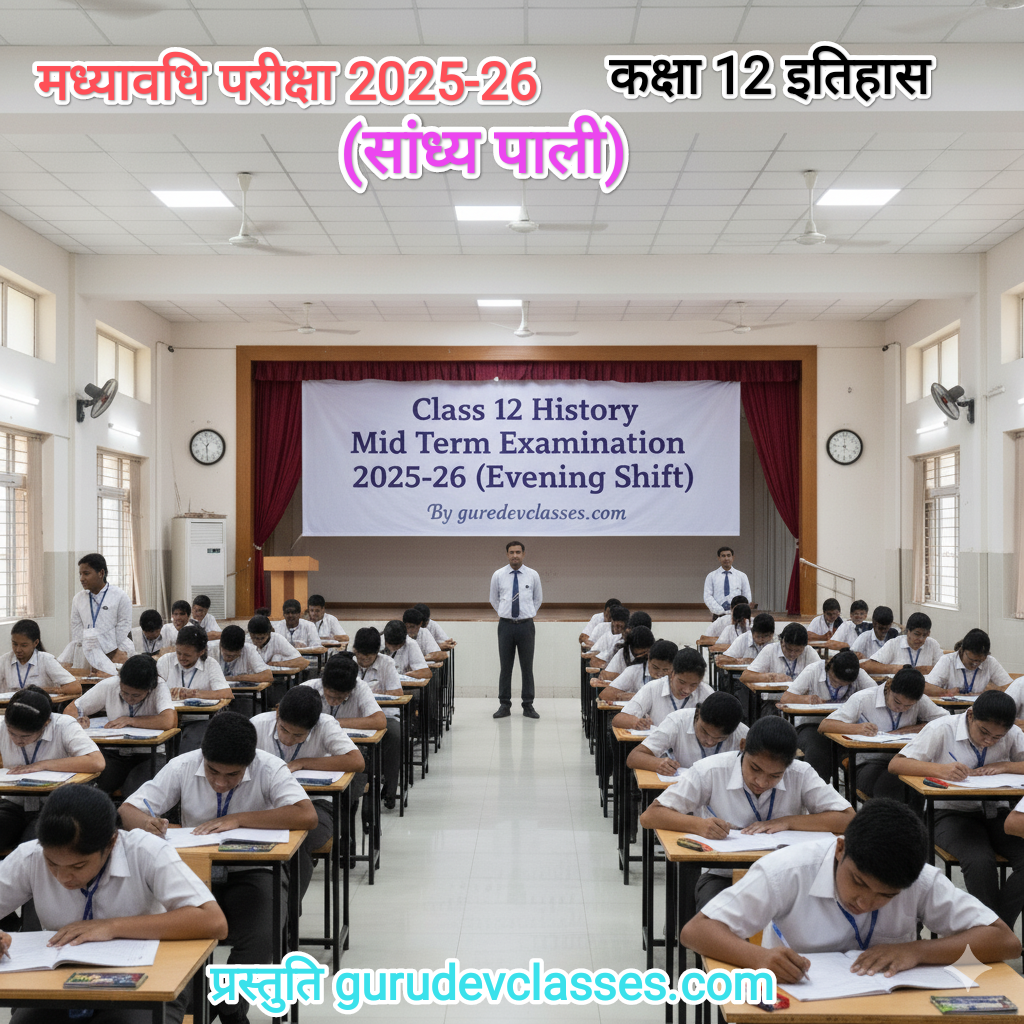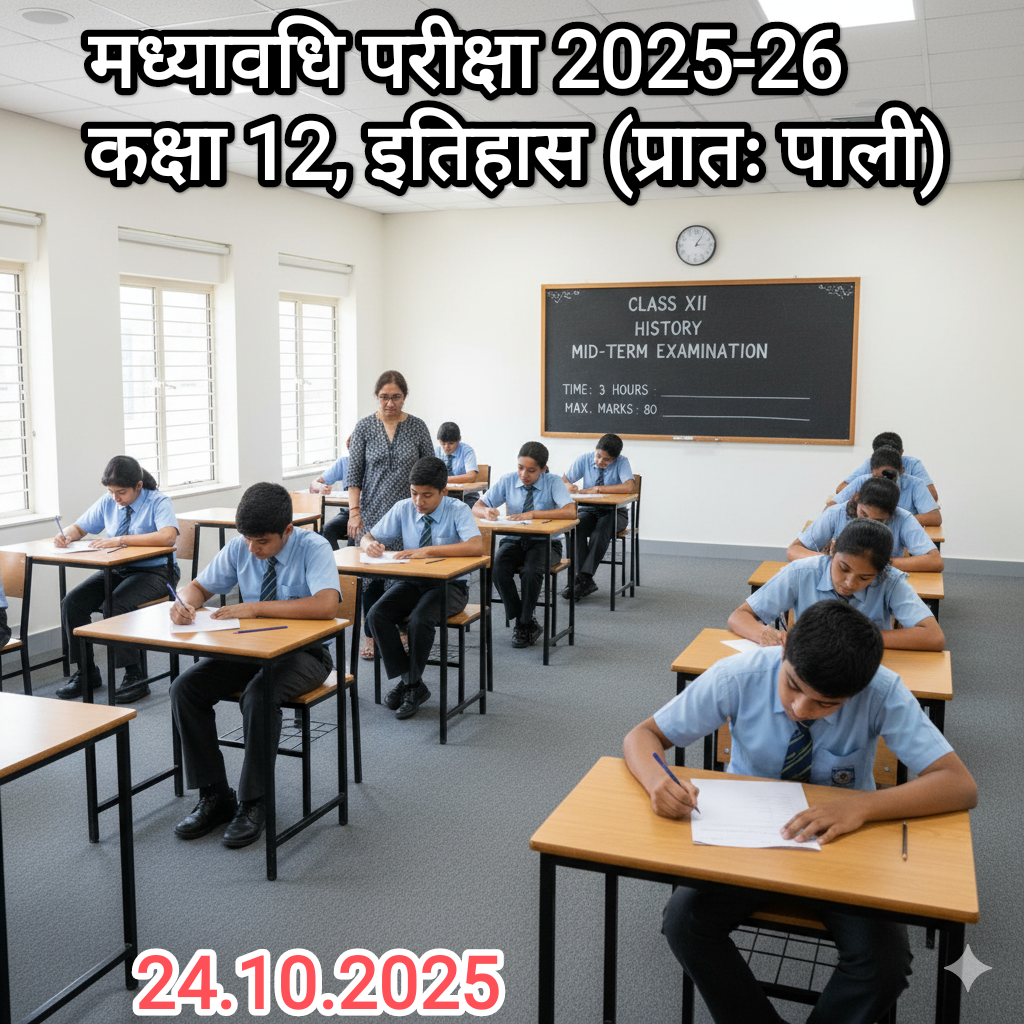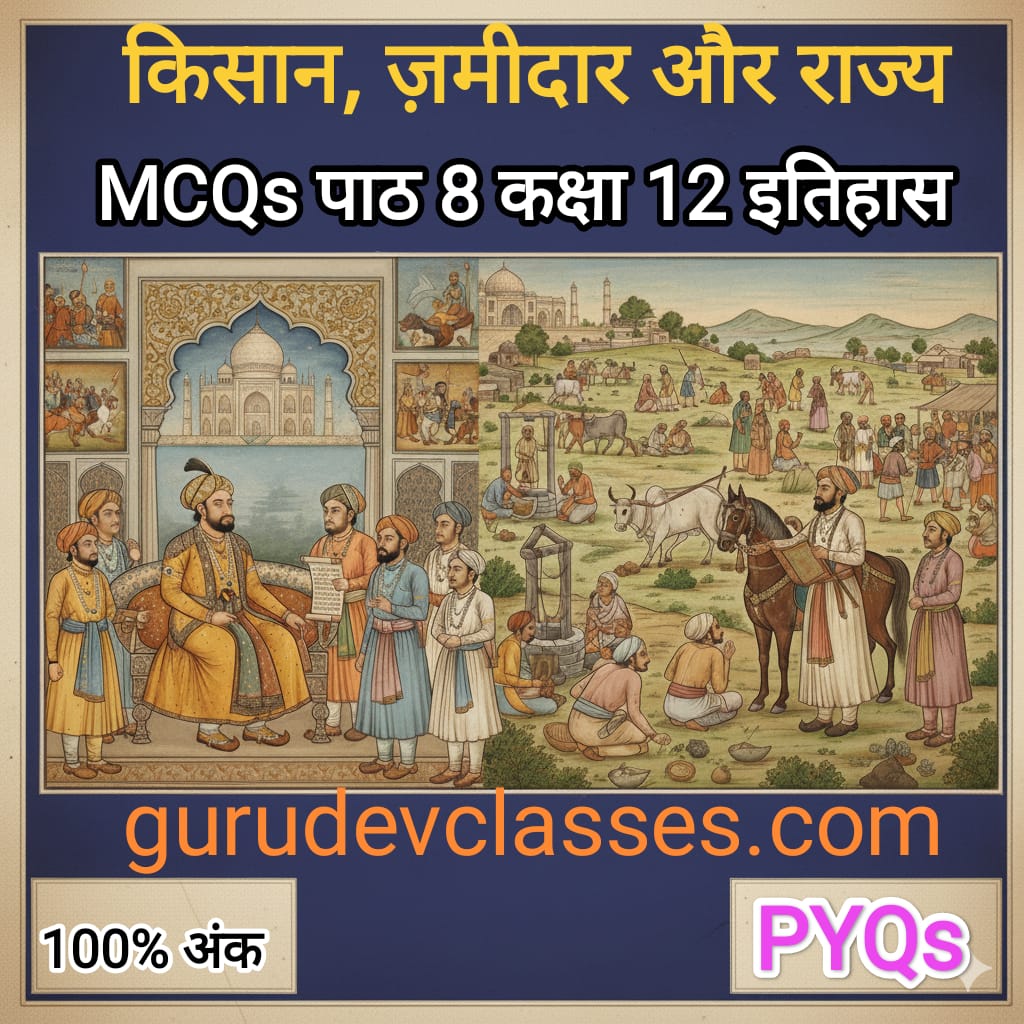2-Marks Questions (Answer in about 40–50 words)
Q1. What are Rights?
Answer:
Rights are justified claims or entitlements that individuals can make from society or the state. They are essential for a dignified life and allow people to express themselves freely, participate in society, and seek protection against arbitrary actions. Rights are protected and guaranteed by laws and the Constitution.
Q2. Mention any two features of Fundamental Rights.
Answer:
Legally enforceable – Citizens can move the courts if their rights are violated.
Universal in nature – Fundamental Rights are guaranteed to all citizens without discrimination.
Q3. What is the Right to Equality?
Answer:
The Right to Equality ensures equal treatment before the law and prohibits discrimination based on religion, race, caste, sex, or place of birth. It guarantees equal opportunity in public employment and includes the abolition of untouchability and titles.
Q4. What is the Right to Constitutional Remedies?
Answer:
This right empowers citizens to approach the Supreme Court or High Courts if any Fundamental Right is violated. It includes the issuance of writs like Habeas Corpus and Mandamus. It is called the ‘heart and soul’ of the Constitution by Dr. Ambedkar.
Q5. State two Cultural and Educational Rights.
Answer:
Minorities have the right to preserve their distinct language, script, and culture (Article 29).
They have the right to establish and manage their own educational institutions (Article 30).
Q6. Why was the Right to Property removed from the Fundamental Rights?
Answer:
The Right to Property was removed from the list of Fundamental Rights by the 44th Amendment (1978) because it was creating obstacles in land reforms and public welfare schemes. It was made a legal right under Article 300A.
Q7. What is the significance of the Right against Exploitation?
Answer:
It protects individuals from being exploited through forced labour, human trafficking, and child labour in hazardous occupations. It upholds human dignity and ensures protection to vulnerable sections of society.
6-Marks Questions (Answer in about 150–170 words)
Q1. Explain any three Fundamental Rights guaranteed by the Constitution of India.
Answer:
India’s Constitution guarantees six Fundamental Rights. The three important ones are:
Right to Equality (Articles 14–18): Ensures equality before law, prohibits discrimination, provides equal opportunities, and abolishes untouchability and titles.
Right to Freedom (Articles 19–22): Includes six essential freedoms – speech, assembly, association, movement, residence, and profession. It also ensures protection from arbitrary arrest and protection of life and liberty.
Right to Constitutional Remedies (Article 32): Empowers individuals to approach the judiciary to enforce their Fundamental Rights. The courts can issue writs like Habeas Corpus, Mandamus, and Certiorari.
These rights collectively aim to uphold the principles of liberty, equality, and justice in Indian democracy and protect individuals from state oppression.
Q2. What is the importance of the Right to Constitutional Remedies in a democracy?
Answer:
The Right to Constitutional Remedies (Article 32) is vital in a democracy because it acts as a protector of all Fundamental Rights. If any right is violated, a citizen can directly approach the Supreme Court or High Court.
Dr. B.R. Ambedkar called it the “heart and soul” of the Constitution. The courts can issue five types of writs – Habeas Corpus, Mandamus, Prohibition, Certiorari, and Quo Warranto – to enforce rights and correct injustice.
This right ensures that the state functions within constitutional limits and protects citizens from arbitrary power. Without this right, Fundamental Rights would be meaningless. It promotes rule of law, judicial accountability, and constitutional supremacy in India.
Q3. Describe the Right to Freedom of Religion. Why is it important in a secular state?
Answer:
Articles 25 to 28 of the Constitution guarantee the Right to Freedom of Religion, which includes:
Freedom to profess, practice, and propagate any religion.
Freedom to manage religious affairs (Article 26).
No religious instruction in state-funded institutions (Article 28).
Protection against paying taxes for promoting any religion (Article 27).
India is a secular state, which means the state does not promote any religion and treats all religions equally. This right ensures that individuals can follow their faith freely and coexist peacefully.
In a multi-religious society like India, this right is crucial to maintain religious tolerance, pluralism, and harmony among various communities.
Q4. How does the Right to Equality ensure equal treatment of all citizens?
Answer:
The Right to Equality (Articles 14 to 18) ensures that all individuals are treated equally before the law and are entitled to equal protection of laws.
Article 14: Equality before law and equal protection of laws.
Article 15: Prohibits discrimination on grounds of religion, race, caste, sex, or place of birth.
Article 16: Guarantees equal opportunity in public employment.
Article 17: Abolishes untouchability.
Article 18: Abolishes hereditary titles and prevents the state from conferring them.
This right promotes social justice, legal fairness, and equal access to opportunities, thus laying the foundation for a democratic society based on fairness and dignity.
Q5. Explain how the judiciary protects Fundamental Rights of the citizens.
Answer:
The judiciary plays a vital role in protecting Fundamental Rights:
Citizens can file petitions under Article 32 (Supreme Court) or Article 226 (High Courts).
Courts issue writs like Habeas Corpus, Mandamus, etc., to protect rights.
Through judicial review, courts can strike down unconstitutional laws.
The judiciary has expanded the scope of rights through progressive interpretation – e.g., Right to Privacy, Right to Education, Right to Clean Environment under Article 21.
The judiciary acts independently and ensures that the executive and legislature work within constitutional limits.
Thus, the judiciary acts as the guardian of the Constitution and the defender of citizen rights, ensuring justice, accountability, and rule of law.







